The UK has lost 83% of its fundamental retail chains in the a long time since the breakdown of the BHS chain.
The figure features the degree of the commotion in the High Street as the Covid pandemic accelerated changes in shopping propensities.
The information, accumulated by business property data firm CoStar Group, likewise uncovers that more than 66% of these shops stay empty.
Nearly 237 major stores still can’t seem to be taken over by another business.
“The information without a doubt features the speed increase of progress in the retail area as of late, which the pandemic has just exacerbated,” said CoStar Group’s head of examination, Mark Stansfield.
CoStar followed the UK’s biggest chains, from BHS and Beales to Debenhams and House of Fraser, from 2016 to the current day.
Five years prior, they had 467 stores between them. Presently, in any case, just 79 are left.
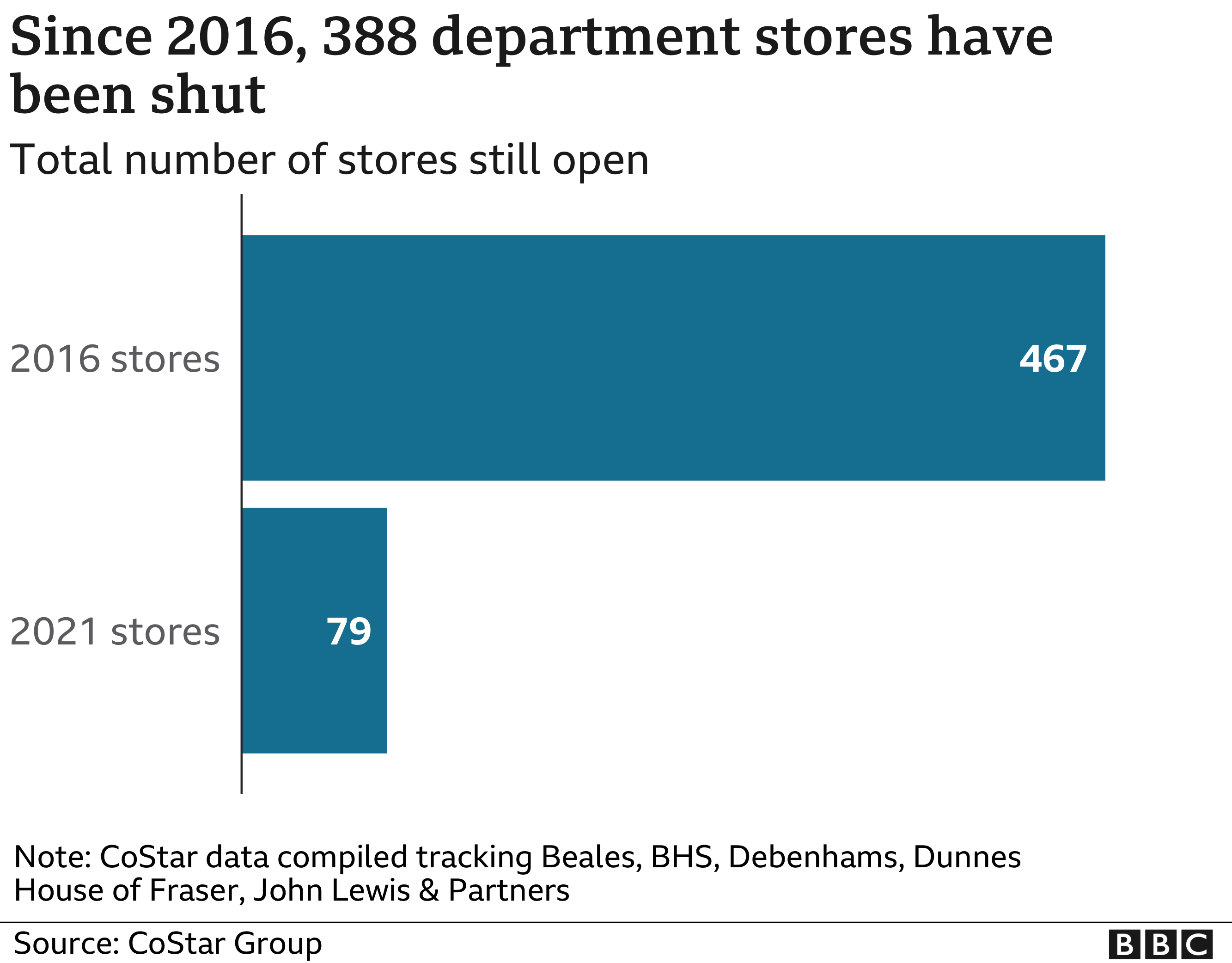
CoStar Group additionally analyzed what had happened to the 388 that had shut.
Albeit 237 are right now sitting vacant, 52 as of now have either firm plans set up or early arranging endorsement for a difference in use or repurposing. The examination was done in July.
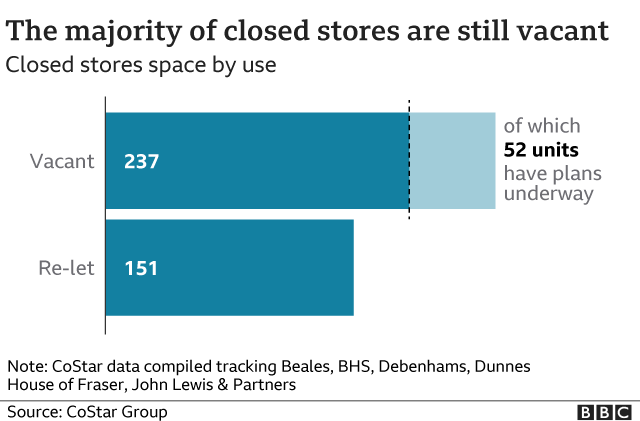
Mr Stansfield told the BBC he accepted the speed of progress would before long move forward.
“We are progressively seeing ground breaking land proprietors advancing beyond the issue and reshaping what are key resources in our town communities to give a point of convergence to recovery,” he said.
“I think we’ll see a lot more plans become known in the coming months. With these store terminations come new freedoms.”
No handy solution
Retail chains have for some time been the foundation of UK shopping regions. Many are in reason constructed malls, while some involve notable structures.
Sorting out how to manage this excess space is probably the greatest test for landowners, just as for the town places that have those properties.
BHS is a decent outline of why there is no handy solution for the issue. Five years after the retailer stopped exchanging, a fourth of its previous outlets have still neglected to draw in new inhabitants.
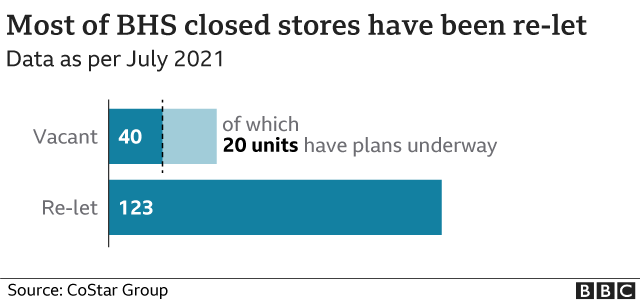
In 2016, the BBC visited the old BHS store on Edinburgh’s Princes Street, one of the greatest in the chain. The proprietors previously had groundbreaking thoughts for the site – and urgently, they chose to transform it into a structure with a blend of various employments.
Its six stories, once loaded with asbestos, have gradually been changed. The old staff storage spaces and a big part of the structure have been transformed into lodging rooms by Premier Inn.
They’re additionally putting the final details to a best in class office directly at the top, while the storm cellar will ideally turn into a bowling alley. There will likewise in the end be retail, simply significantly not exactly previously.
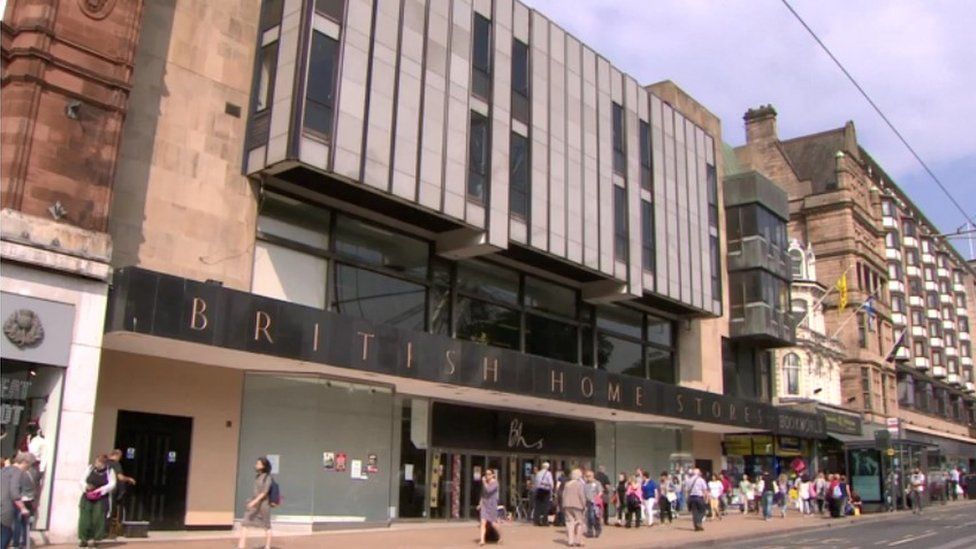
“It costs huge amount of cash and sets aside a great deal of effort to transform these enormous organization spaces into new uses,” says the draftsman behind the task, Frank Hinds of CDA.
“Being developed terms, we did this in a moderately short space of time.”
With regards to repurposing, says Mr Hinds, the hindrances are frequently monetary. Financial backers must have the option to make a re-visitation of legitimize the colossal speculation. Fortunately for this BHS, it’s on an elite road.
“The feasibility comes from the area and the craving that individuals must be in that area,” he adds.
For Premier Inn, the hotelier in question, it was a chance too great to even think about missing. “Structures like this don’t show up frequently with wonderful perspectives across to the palace,” says Valerie Graham, territorial tasks chief.
“Seeing such countless individuals get utilization of the space is simply phenomenal. Furthermore, the interest is there. We’re making occupations as well.”
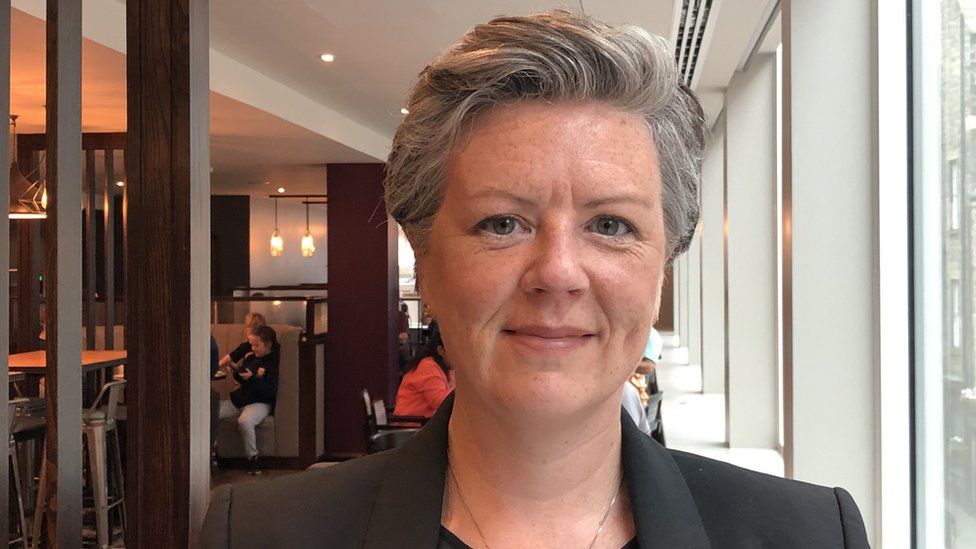
Edinburgh has lost four of its fundamental retail chains in the previous few years, however, luckily, there are arrangements under way for every one of them.
For example, the previous House of Fraser store at the opposite finish of Princes Street is going to open its entryways as the Johnnie Walker Whisky Experience.
Unassuming community blues
Filling the holes in more modest towns is a lot more noteworthy test. In Dumfries, the old Debenhams store is as yet empty.
It’s the greatest retail unit in the town, without any takers so far for the space.
“It comes down to cash,” says Scott Mackay, who runs the Midsteeple Quarter, a nearby organization established to profit the local area.
Through crowdfunding, gifts and public cash, it’s purchasing old, vacant, shops and resurrecting them with new inhabitants.
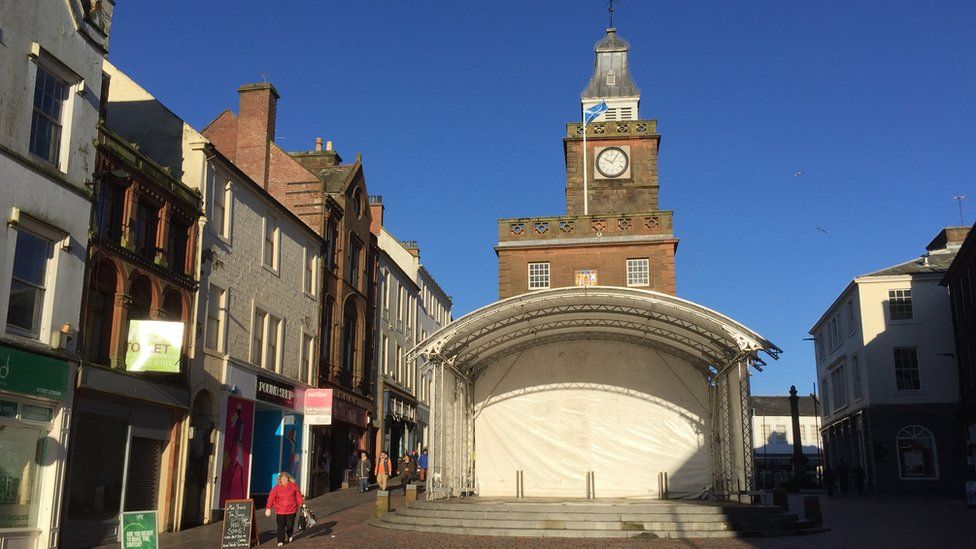
“This is a little provincial town truly and there isn’t the measure of cash to be put resources into Dumfries contrasted and our greater urban communities. We stand or fall on our own two feet,” he says.
Might he want to take on the previous Debenhams site also? “In the event that we had the subsidizing, totally we would take on a structure like this,” he says.
“I figure it would make a tiny store film or food court on the ground floor, with possibly private on the upper floors.”
Some of type of mediation is required, he accepts, to keep away from the store sitting void for quite a long time.
Debenhams is a later loss of the changing High Street climate than BHS, having closed its last stores in May this year.
On the whole, 149 previous Debenhams stores are as of now empty, as the information from CoStar Group shows.
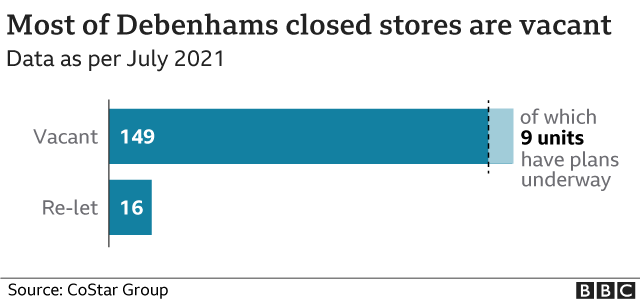
CoStar’s group has been scouring arranging applications and conversing with property specialists on the ground just as large landowners for this examination, which is the most exhaustive picture to date on the colossal underlying changes to have hit this piece of British retail.
The hunger for quality shop space hasn’t totally reduced. For example, Next has effectively taken space in Debenhams stores for its new magnificence idea, while Mike Ashley is redeveloping or re-letting space for his Flannels image.
In any case, in case BHS is anything to pass by, resuscitating a large number of these tremendous locales will set aside time, just as some extreme reasoning.